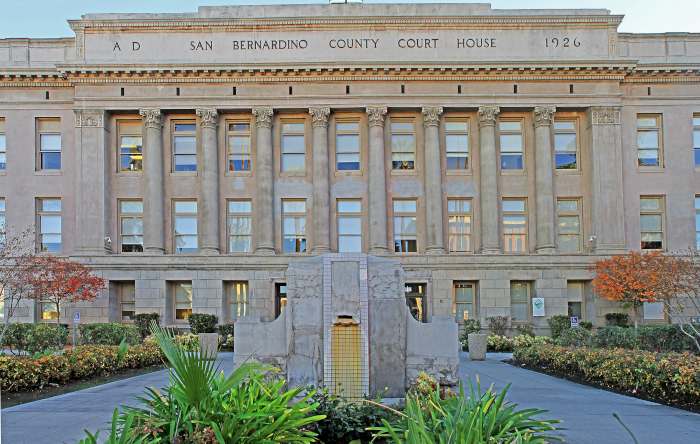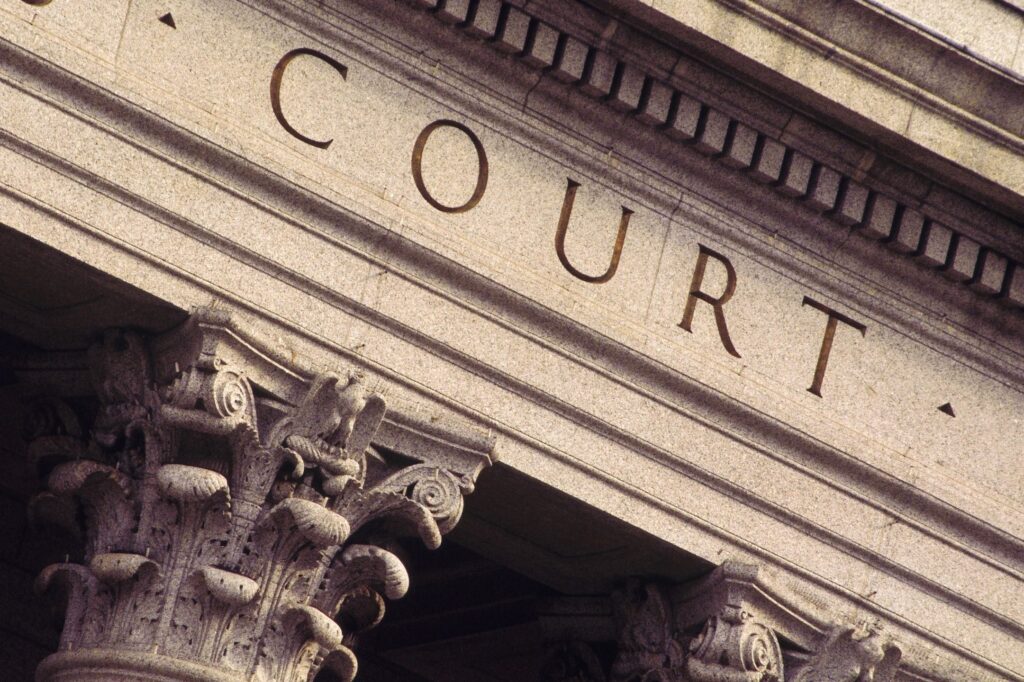Litigation Firm Serving San Bernardino & Riverside Counties In The Areas Of Civil Litigation, Family Law & Personal Injury – 909-848-8448, 1200 California Street, Suite 260, Redlands, California 92374 & 6809 Indiana Avenue #130-C19, Riverside, California 92506
Law Offices of James R. Dickinson- 909-848-8448:
Family Law: Divorce, Legal Separation, Paternity/Parentage, Child Custody & Visitation, Child Support, Spousal Support [Alimony], Premartial Agreements, Domestic Violence Restraining Orders, Etc.
Divorce & Legal Separation: Divorce is the legal process that formally ends a marriage between two individuals. It involves the dissolution of the marital relationship, with the division of assets, debts, and responsibilities between the spouses. The process of divorce involves filing a petition for divorce, reaching agreements [or conducting trials] on issues such as child custody, visitation, spousal support, and property division, and obtaining a final judgment from the court. Divorce can be a complex and emotionally challenging process, and it is often recommended that individuals seek legal advice and support to navigate the legal requirements and implications of divorce. Legal separation is the legal process through which a married couple can formalize their separation without officially ending their marriage. During a legal separation, the couple remains married but lives separately and addresses issues such as child custody, spousal support, division of assets, and other matters typically handled in a divorce.
Child Custody & Visitation: Child custody refers to the legal and practical relationship between a parent and a child, including the right of the parent to make decisions about the child’s upbringing and well-being. There are two main types of child custody: physical custody and legal custody. Physical custody determines where the child will live, while legal custody involves the right to make decisions about the child’s education, healthcare, and other important aspects of their life. Child custody arrangements can be decided through court orders or mutual agreements between parents, with the best interests of the child being the primary consideration. Child visitation, also known as parenting time, refers to the schedule and arrangements made for a non-custodial parent to spend time with their child. This typically occurs when one parent has primary physical custody of the child, and the other parent is granted visitation rights. Visitation schedules can vary depending on the specific circumstances of the family, but they are usually outlined in a court order or custody agreement. Visitation allows the non-custodial parent to maintain a relationship with their child and participate in important aspects of their upbringing, such as spending time together, attending events, and making decisions during their scheduled visitation periods.
Parentage: Parentage refers to the legal relationship between a parent and a child, establishing the rights and responsibilities that each parent has towards their child. Parentage can be established in various ways [speak with an attorney regarding this]. Determining parentage is important for issues such as child custody, visitation rights, child support, and inheritance rights. It is essential to establish parentage to ensure the well-being and legal protection of the child.
Child Support: Child support is a court-ordered financial contribution made by one parent to the other for the care and support of their child. The amount of child support is determined based on various factors, including the income of both parents, the number of children involved, and the amount of time each parent spends with the child. California uses a statewide guideline formula to calculate child support. Child support payments are typically made on a monthly basis and are intended to cover the child’s basic needs, such as food, shelter, clothing, education, and healthcare. Failure to pay child support can result in legal consequences, such as wage garnishment, etc.
Spousal Support: Spousal support, also known as alimony, refers to the financial support that one spouse may be required to pay to the other spouse after a divorce or legal separation. The purpose of spousal support is to help the supported spouse maintain the standard of living they had during the marriage. The amount and duration of spousal support are determined based on various factors, including the length of the marriage, the earning capacity of each spouse, the standard of living during the marriage, and any other relevant circumstances. Spousal support can be temporary or permanent, depending on the specific situation, and it can be modified or terminated under certain conditions.
Domestic Violence Restraining Orders: A domestic violence restraining order is a court order that helps protect individuals from abuse or threats of abuse by a family member, intimate partner, or someone with whom they have a close relationship. To obtain a domestic violence restraining order, the individual seeking protection (the petitioner) must file a petition with the court detailing the abuse or threats they have experienced. If the court finds that there is a reasonable basis to believe that domestic violence has occurred, it may issue a temporary restraining order (TRO) to provide immediate protection. A hearing will then be scheduled to determine whether a permanent restraining order should be granted. A permanent restraining order can include provisions such as ordering the abuser to stay away from the victim, refrain from contacting them, and possibly move out of a shared residence. Violating a domestic violence restraining order can result in legal consequences for the abuser. It is important to seek legal advice and support when dealing with domestic violence situations and restraining orders.
Personal Injury: Automobile Accidents, Dog Bites, Premises Liability, Wrongful Death, Etc.
Automobile Accidents: Auto accident law encompasses a set of legal rules and regulations that govern the rights and responsibilities of individuals involved in car accidents. Drivers are required to carry a minimum amount of liability insurance to cover damages in the event of an accident. When an auto accident occurs, fault is typically determined based on negligence, which involves proving that one party failed to exercise reasonable care while driving. California follows a “comparative fault” system, where each party involved in the accident may be assigned a percentage of fault, and damages are awarded accordingly. Victims of auto accidents may be entitled to compensation for medical expenses, property damage, lost wages, pain and suffering, and other related costs. It is important to consult with a qualified attorney who specializes in auto accident law to understand your rights and options following an accident.
Dog Bites: California’s dog bite laws, also known as strict liability laws, hold dog owners liable for damages caused by their dog bites to people in public or lawfully on private property. This means that the injured person doesn’t need to prove the owner acted negligently to receive compensation. The owner’s liability is not affected by whether the dog had bitten anyone before, if the owner took precautions to prevent bites, or if the owner knew the dog could be dangerous.
Premises Liability: Premises liability laws in California hold property owners and occupiers responsible for maintaining safe conditions on their premises to prevent harm to visitors or guests. Under California law, property owners have a duty to exercise reasonable care in ensuring that their property is safe for those who enter it. This duty extends to both invitees (such as customers) and licensees (such as social guests), but it is lower for trespassers. Premises liability cases are typically based on negligence, where the property owner or occupier fails to maintain safe conditions or warn visitors of potential hazards. If someone is injured on another person’s property due to unsafe conditions, they may be able to file a premises liability claim to seek compensation for their injuries. It’s important to note that premises liability laws can be complex, and the specific details of each case can vary. If you have been injured on someone else’s property, it is advisable to consult with a qualified attorney who can provide guidance on your legal rights and options.
Wrongful Death: Wrongful death laws allow certain family members of a deceased individual to seek compensation for the loss of their loved one due to the negligence or wrongful act of another party. The laws are outlined in the California Code of Civil Procedure sections 377.60-377.62. Under California law, wrongful death claims can be filed by the surviving spouse, domestic partner, children, or other designated beneficiaries of the deceased. Damages that may be recovered in a wrongful death lawsuit can include compensation for funeral and burial expenses, loss of financial support, loss of companionship, and other related losses. It is important to note that there are specific time limits, known as statutes of limitations, for filing a wrongful death claim in California. Consulting with a qualified attorney who specializes in wrongful death cases can provide guidance on the legal process and help determine the best course of action for seeking justice and compensation for the loss of a loved one.
Civil Litigation: Breach of Contract, Business Disputes, Fraud, Real Property Disputes, Negligence, Interference with Economic Interests, Breach of Fiduciary Duty, Civil Harassment Restraining Orders, Defamation, Etc.
Breach of Contract: Breach of contract occurs when one party fails to fulfill their obligations as outlined in a legally binding agreement. To establish a breach of contract under California law, the following elements must typically be proven: 1. Existence of a valid contract: There must be a valid and enforceable contract between the parties involved. 2. Breach of contract: One party must have failed to perform their obligations under the contract. 3. Damages: The non-breaching party must have suffered damages as a result of the breach. In the event of a breach of contract, the non-breaching party may seek remedies such as monetary damages, specific performance (forcing the breaching party to fulfill their obligations), or cancellation of the contract. It is advisable to consult with a legal professional familiar with California contract law to understand your rights and options in case of a breach of contract.
Business Disputes: Business dispute law in California encompasses a wide range of legal issues that may arise between businesses, such as contract disputes, partnership disputes, intellectual property disputes, and more. Business disputes are typically resolved through litigation, arbitration, or mediation, depending on the nature of the dispute and the preferences of the parties involved. Legal remedies for resolving business disputes, including damages, injunctions, specific performance, and other forms of relief.
Fraud: Civil fraud refers to the intentional deception or misrepresentation of facts by one party to another, leading to harm or loss. Civil fraud laws in California are governed by both statutory law and common law principles. To establish a claim of civil fraud in California, the following elements must typically be proven: 1. The defendant made a false representation of a material fact. 2. The defendant knew the representation was false or made it recklessly without knowledge of its truth. 3. The defendant intended to deceive the plaintiff. 4. The plaintiff justifiably relied on the false representation. 5. The plaintiff suffered harm or damages as a result of the reliance on the false representation. Civil fraud claims in California can result in various remedies, including monetary damages, rescission of contracts, and punitive damages in cases of egregious misconduct. It is advisable to consult with a legal professional familiar with California civil fraud laws for specific guidance and advice.
Real Property Disputes: Real property disputes are governed by a combination of state laws, local ordinances, and common law principles. Common types of real property disputes include boundary disputes, easement issues, and disputes over ownership or title to property. When faced with a real property dispute, it is important to understand the relevant laws and legal procedures that apply to your specific situation. Seeking legal advice from a qualified real estate attorney who is familiar with California real property laws is recommended to navigate the complexities of real property disputes and protect your rights.
Negligence: Negligence law is based on the legal principle that individuals have a duty to exercise reasonable care to avoid causing harm to others. Negligence occurs when someone breaches this duty of care, resulting in harm or injury to another person. To establish a claim for negligence in California, the following elements must be proven: 1. Duty of Care: The defendant owed a duty of care to the plaintiff to act reasonably and avoid causing harm. 2. Breach of Duty: The defendant breached this duty by failing to act as a reasonable person would under similar circumstances. 3. Causation: The defendant’s breach of duty was the direct cause of the plaintiff’s harm or injury. 4. Damages: The plaintiff suffered actual damages, such as physical injuries, emotional distress, or financial losses, as a result of the defendant’s negligence. California follows a comparative negligence system, which means that damages may be reduced if the plaintiff is found partially at fault for the incident. It is important to consult with a legal professional familiar with California negligence law to understand your rights and options in a negligence case.
Interference with Economic Interests: Interference with economic interests refers to a legal claim that can be brought against a party who disrupts or interferes with another party’s economic relationships or business opportunities. This can include actions such as unfair competition, intentional interference with contractual relations, or intentional interference with prospective economic advantage. To establish a claim for interference with economic interests, the plaintiff must typically prove that the defendant engaged in wrongful conduct that caused harm to the plaintiff’s economic interests. It is advisable to consult with a legal professional for specific advice and guidance on this matter.
Breach of Fiduciary Duty: Breach of fiduciary duty occurs when a person in a position of trust and confidence, such as a trustee, executor, or agent, fails to act in the best interests of another party, known as the beneficiary. Fiduciary duties include obligations such as loyalty, honesty, and acting in good faith towards the beneficiary. When a breach of fiduciary duty occurs, the affected party may have legal recourse to seek damages or other remedies through civil litigation. California law provides specific guidelines and remedies for addressing breaches of fiduciary duty, and it is advisable to consult with a legal professional for guidance on how to proceed in such cases.
Civil Harassment Restraining Orders: Civil harassment restraining orders are legal orders issued by the court to protect individuals from harassment, abuse, threats, or violence by someone who is not [closely] related to them. These orders can be requested by individuals who have been subjected to harassment or abuse by someone who is not a [close] family member or intimate partner. To obtain a civil harassment restraining order in California, the petitioner must demonstrate to the court that they have been subjected to harassment or abuse and that they have a reasonable fear for their safety. If granted, the restraining order can prohibit the harasser from contacting or coming near the petitioner, as well as other specific protections as deemed necessary by the court. It is important to seek legal advice and assistance when pursuing a civil harassment restraining order in California to ensure that the process is carried out correctly and effectively.
Defamation: Defamation laws protect individuals from false statements that harm their reputation. Defamation can be classified as either libel (written or published false statements) or slander (spoken false statements). To prove defamation, a plaintiff must show that the defendant made a false statement about them, the statement was published or communicated to a third party, the statement caused harm to the plaintiff’s reputation, and the defendant acted with negligence or malice. California recognizes certain defenses to defamation, such as truth, privilege, and opinion. It is important to consult with a legal professional for specific advice on defamation laws in California.
Law Offices of James R. Dickinson- 909-848-8448, 1200 California Street, Suite 260, Redlands, California 92374 & 6809 Indiana Avenue #130-C19, Riverside, California 92506:
We provide personalized service to each of our clients and we work tirelessly to achieve desired results. Here’s some information about Attorney James R. Dickinson:
Education:
La Sierra University, Riverside, California- Bachelor of Arts, History, Cum Laude
University of La Verne College of Law, La Verne, California- Juris Doctor, Cum Laude
Awards & Designations:
“Top 40 Under 40,” The National Trial Lawyers
“10 Best For Client Satisfaction,” American Institute of Litigation Attorneys
Various Awards from University of La Verne College of Law: Pro Bono/Public Service Award, CALI Awards [Property Seminar, Constitutional Issues Seminar, Advanced Legal Research, Moot Court Honors: Advanced Appellate Advocacy & Trial Advocacy], Law Review Editorial Board [Multiple Semesters], Peer Assistance & Support Scholar [Multiple Semesters], Dean’s List [Multiple Semesters], Certificate of Achievement in Legal Research, Paul Egly Endowed Scholarship, Moot Court Traveling Team [HNBA 17th Annual National Competition], Best Respondent’s Brief, Moot Court Honors
Publications:
University of La Verne Law Review, 2010 [Staff], 2011 [Editorial Board] & 2012 [Editorial Board]
Memberships:
State Bar of California [SBN: 285870]
US District Court [Eastern, Central & Southern Districts]
How To Schedule A Consultation:
Please call us at 909-848-8448 to schedule a free consultation/case evaluation or complete the form immediately below. [Please note certain formalities must be completed to retain the Law Offices of James R. Dickinson, such as the signing of a legal fee agreement [see “Disclaimers” below]].
Law Offices Of James R. Dickinson, 909-848-8448, 1200 California Street, Suite 260, Redlands, California 92374 & 6809 Indiana Avenue #130-C19, Riverside, California 92506
Call us at (909) 848-8448
Disclaimers:
Nothing on this site is legal advice and information on this site should not be relied on. Accessing this site does not create an attorney-client relationship.
Though the Law Offices of James R. Dickinson protects client information, it cannot, and therefore does not, guarantee the information input into this site won’t be intercepted, accessed or acquired by persons or entities utilizing the Internet. Please do not enter confidential case/matter information or other confidential information on this site.
Posts on this publicly-accessible website are for informational or educational purposes (and relate solely to California law) and legal sources referenced or relied on are in the public domain or are used with permission and/or pursuant to the fair use doctrine. Images used on this site are in the public domain or used with permission or license as part of the purchased site product or subscription.
To the extent the blog mentions topics or speaks on issues related to mental health or human relationships, this Office obviously does nothing related to mental health or therapy. For such issues, contact a licensed mental health expert, counselor, therapist, etc. To the extent the blog mentions topics or speaks on issues related to physical injuries, this Office obviously does nothing related to medical diagnosis or treatment. For such issues, seek medical care or assistance from a hospital, physician, etc.




